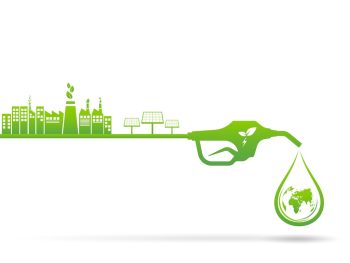Major concerns have been raised about fleet use of hydrotreated vegetable oil (HVO) as the Government investigates claims of significant fraud over its sustainability.

The drop-in fuel, billed as being made from vegetable oils, animal fats and waste materials, is increasingly being adopted by fleets and is seen as a key “environmentally positive” fuel.
But according to the BBC, the Department for Transport is investigating the fuel amid claims that large amounts of the materials used for HVO are not waste but instead are virgin palm oil, which is being fraudulently relabelled.
Analysis by the BBC, which has been shared with the DfT, also casts further doubt on one of the key ingredients in HVO, a material called palm sludge waste.
According to the broadcaster, Europe used more of this waste in HVO and other biofuels in 2023 than it is thought possible for the world to produce.
The Department for Transport responded to the BBC and said it “take the concerns raised seriously and are working with stakeholders and international partners to gather further information”.
Mike Nakrani, CEO of VEV, an e-fleet solutions provider that’s backed by energy giant Vitol, said: “While HVO is often positioned as a ‘green’ alternative to diesel, the recent BBC investigation highlights significant concerns about its sustainability at scale.
“The reality is that sustainable HVO supply is severely limited, despite its marketing as an eco-friendly fuel. The more fleets adopt HVO, the worse the environmental impact becomes as demand outstrips genuine waste oil availability and suppliers to turn to environmentally harmful virgin palm oil instead, while still marketing the fuel as sustainable. So, while it might feel ‘sustainable’ to use HVO and book the emissions savings, that’s not the whole picture.”
Nakrani said there were viable use cases for HVO in vehicles that don’t yet have electric equivalents, such as bulldozers.
But he called for operators of buses, waste collection vehicles, vans and HGVs to make the move to EVs where possible insteads of turning to HVO.
“With HVO also costing 10-20% more than conventional diesel, fleets should look to electrify where they can today, rather than delaying and increasing demand for unsustainable HVO, which has a major environmental impact. The only genuinely sustainable future for transport is electrification,” Nakrani reasoned.

